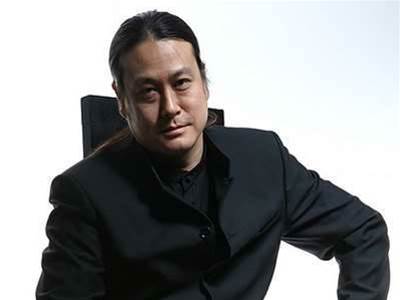Beijing-based academic Kaiser Kuo will bravely step into a local political storm in a series of televised debates this week as one of the few voices arguing that some forms of internet censorship can be justified.

His billing on Q&A tonight, at the Intelligence Squared debate at Sydney's City Recital Hall tomorrow night and the Wheeler Centre in Melbourne on Thursday presents an opportunity to understand internet censorship from a very different world-view to our own.
Speaking to iTnews from his Sydney hotel room today, Kuo joked that he was asked to come to Australia because the St James Ethics Centre - which runs the Sydney event - "struggled to locate anyone willing to back such an unpopular position" - that censorship can be justified.
But those expecting Kuo to argue censorship is routinely justified will be disappointed. Kuo, a consultant for Chinese video site Youku.com and a political science graduate from Berkeley, would feel more comfortable on the other side of the debate.
"In most cases, I am opposed to internet censorship," he said. "It is rarely used judiciously.
"I just need to help people understand that this isn't a black and white issue, there are many shades of grey."
Kuo argues that his home country of China has a "draconian sense of censorship.
"I have severe objections to the way it's done in China," he said. "It is entirely un-transparent and arbitrary. It is done using blunt instruments, and there are unintended casualties when they swing those blunt instruments about.
"But even in China, occasionally there are instances where lives are actually saved by internet censorship. It's rare, but it happens."
Life-saving censorship?
Kuo takes us back to July 5th, 2009, when the Chinese Government locked down the whole of the Xinjiang province in response to ethnic violence in its capital, Urimqi. In this case, a larger number of Han Chinese - the nation's predominate ethnicity - were killed in clashes with a minority group, the Uighurs.
"The security bureaucracy agreed very quickly to enact an internet blackout," Kuo said. "There were genuine fears of recriminations against the Muslim Uighur minority throughout China. Han Chinese in bigger cities were ready to incite violence against this minority.
"As heavy handed as their reasons were, the impetus for the bureaucracy to censor the internet was not unreasonable."
Kuo also uses an example from India - where the popular Google Orkut social networking tool is monitored and censored by Google against any criticisms of the Hindu Nationalist Party Shiv Sena, purely because of the violence such discussions have led to historically.
"It's a real problem for Google," Kuo says. "They believe in the right to free speech, but they also don't like people rioting and burning cars."
Read on for Page Two - The reality of Chinese internet censorship


_(28).jpg&h=140&w=231&c=1&s=0)
_(33).jpg&h=140&w=231&c=1&s=0)







 iTnews Benchmark Awards 2026
iTnews Benchmark Awards 2026
 iTnews Executive Retreat - Security Leaders Edition
iTnews Executive Retreat - Security Leaders Edition
 iTnews Cloud Covered Breakfast Summit
iTnews Cloud Covered Breakfast Summit
 The 2026 iAwards
The 2026 iAwards












_(1).jpg&h=140&w=231&c=1&s=0)



